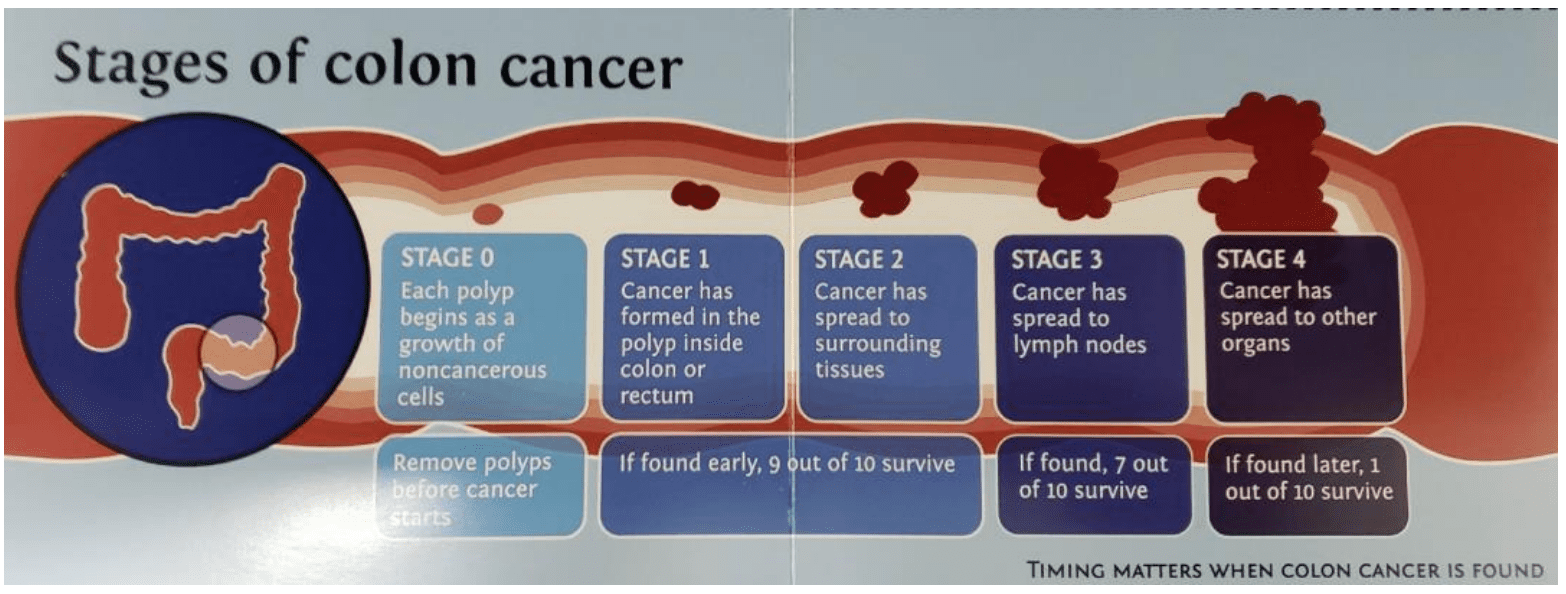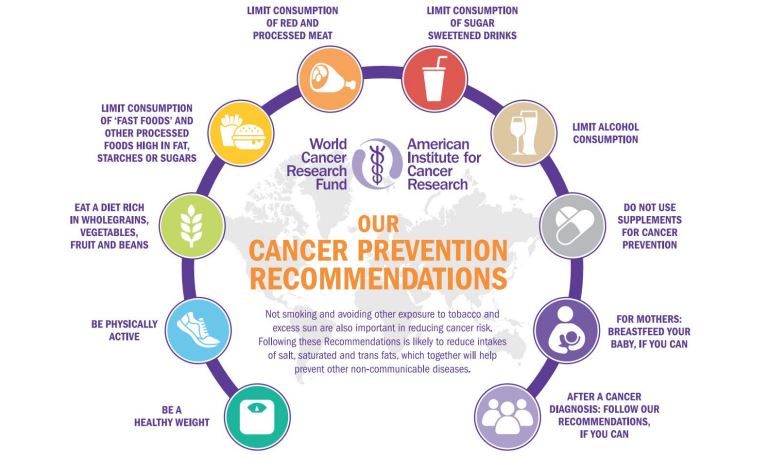Colorectal Cancer & Lifestyle
Shelby Stein, RDN, LRD – Community Dietitian
Colorectal Cancer is the 2nd leading cause of death for American Indian men and women in the U.S, and the third most common cancer for the Great Plains American Indians. It occurs more often in Great Plains American Indian tribes than in Caucasians and American Indians in other regions of the U.S. with the exception of the Alaska Natives. The Centers for Disease Control and Prevention (CDC), state that Colorectal Cancer (CRC) is most likely to affect Native American men and women over the age of 50, but we are now seeing cases in individuals as young as 30 years old. Living a healthy lifestyle and early, regular screenings are your best protection against colorectal cancer.
What is colorectal cancer? It is a disease in the large intestine (colon) and rectum. Most colon cancers start as small noncancerous clumps of cells called polyps. Without treatment, polyps may turn cancerous.

Regular screening tests are important in helping prevent colon cancer because they identify polyps before they become colon cancer. Screenings can also detect colon cancer early, which means there is a greater chance of it being successfully treated. A few different screening tests are available for colorectal cancer. Colonoscopies are a common option but the easiest option is a fecal immunochemical test (FIT) kit. This test is simple and done in your own home! This kit is an early detection screening device that detects blood in the lower GI tract, that you cannot detect in the early stages, and may be an indication of polyps.
Elbowoods will be in each community to do education and offer free kits for colorectal cancer screenings. Be sure to stop by one of the screening events; they will be held from 10a-3p at the following locations: Twin Buttes Community Center on April 11th, TERO Building on April 16th, Parshall Red Hall on April 17th, Mandaree Elders Building on April 26th, White Shield Elders Building on April 29th, and Four Bears New Johnny Bird Building on April 30th.
Making healthy lifestyle choices can also help to reduce risk of colorectal cancer. Three simple steps to protect against colorectal cancer start on your plate!
1. Decrease portions of red & processed meats. Aim for 3 oz portions, about the size of a deck of cards, of red meats. Eat little, if any, processed meats such as bacon, hot dogs, sausage, and deli meats. Studies have found links between red and processed meat intakes and high rates of colorectal cancer.
2. Fill up on fiber-rich foods! Make whole grains (oatmeal, brown rice, wheat bread, etc.), vegetables, fruits, nuts, and legumes (black beans, pinto beans, chickpeas, lentils, etc.) staples in your usual daily diet. Studies suggest that increased fiber intake, especially from whole grain may lower colon cancer risk. Eating more fiber also helps promote healthy digestion, blood sugar stabilization, and helps us feel fuller for longer after eating.
3. Limit your intake of sugary drinks as much as possible. Drink mostly water and unsweetened drinks (black coffee, unsweetened tea). Avoid drinking pop, sports drinks, energy drinks, and fruit juice drinks.
There are other lifestyle factors that can help decrease risk of cancer development. Aim to maintain a healthy weight, avoid tobacco usage, limit alcohol intake, and be physically active as part of everyday life – walk more and sit less. Not only will these diet and lifestyle factors help reduce your risk of colorectal cancer, they also help to reduce your risk of developing other types of cancer, will help prevent or manage diabetes and heart disease, and help to promote a healthy body weight.

If you’d like to set up an appointment with a registered dietitian for support in your nutrition and health goals or for assistance in planning a healthy diet, please give the diabetes program a call at 701-627-7931! Otherwise be sure to mark the Elbowoods Cancer Screenings in your calendar so you can get your screening kit!